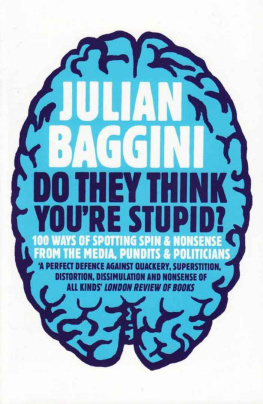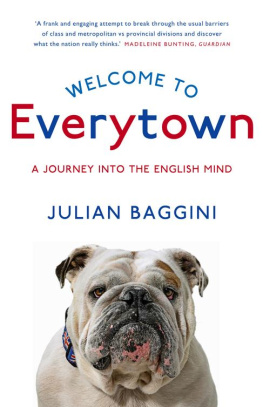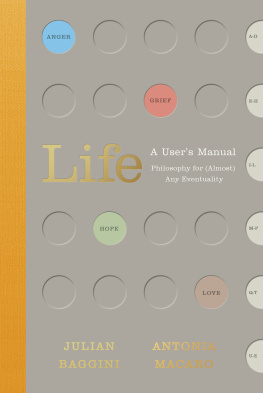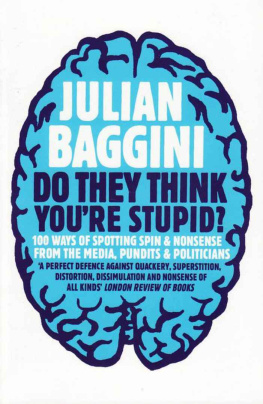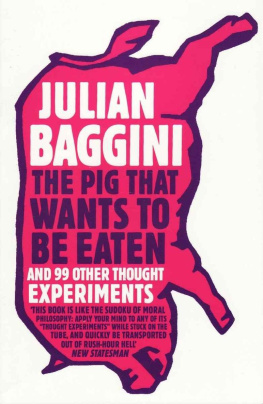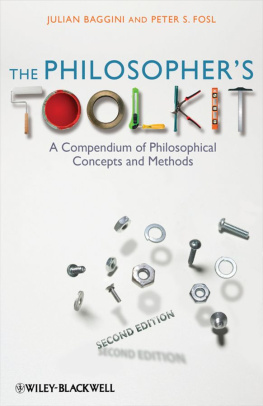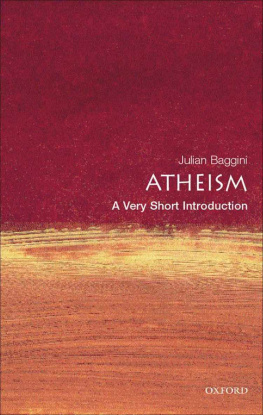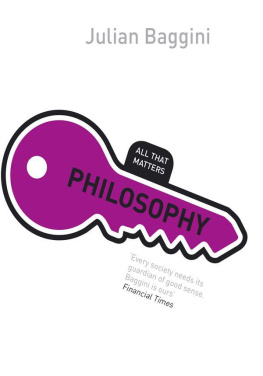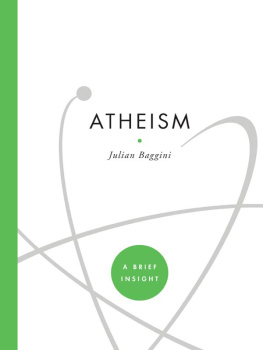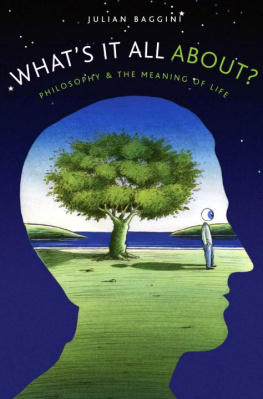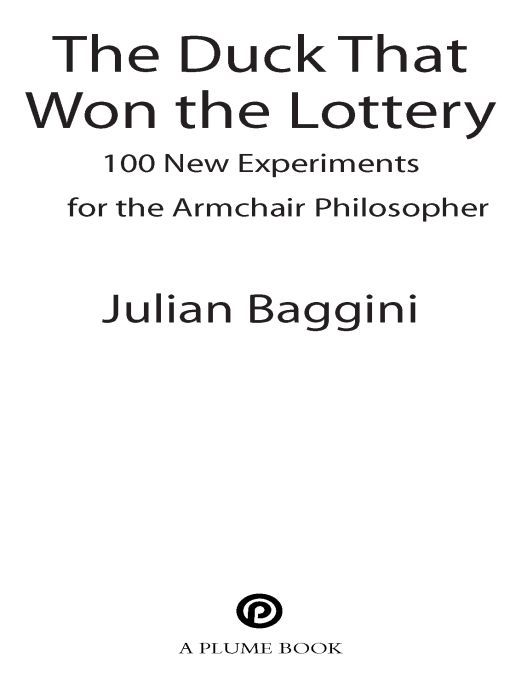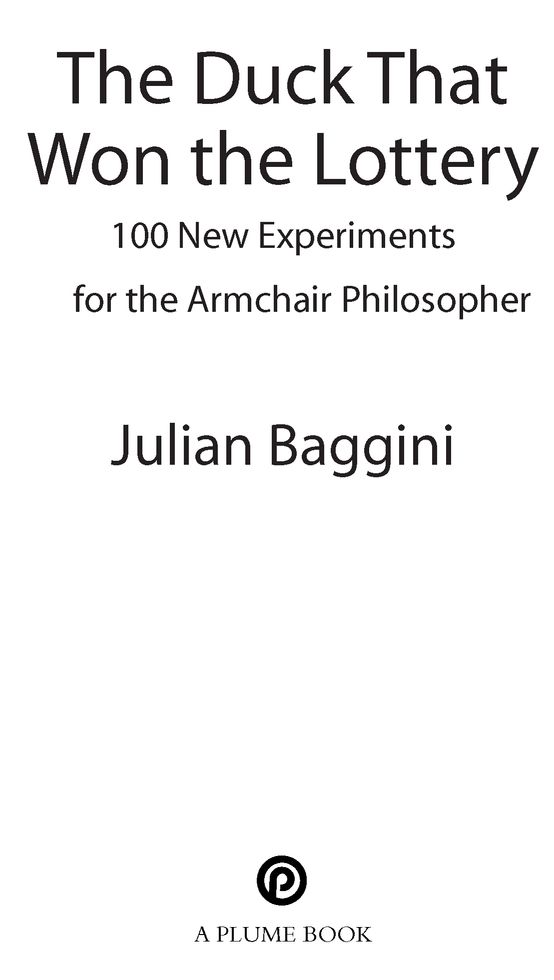Table of Contents
JULIAN BAGGINI is the cofounding editor of The Philosophers Magazine. He writes regularly for the Guardian in the UK and is the author of The Pig That Wants to Be Eaten and Do You Think What You Think You Think?
Also by Julian Baggini
Welcome to Everytown: A Journey into the English Mind
The Pig That Wants to Be Eaten
Whats It All About?Philosophy and the Meaning of Life
By Julian Baggini and Jeremy Stangroom
Do You Think What You Think You Think?
Preface
Doing things right is simple: just eliminate all your mistakes and then youll be perfect. This is as true for thinking and arguing well as it is in any other skill. The main priority for someone who aspires to think clearly is to cut out all the fallacies and confusions that infect reasoning. The problem is that there are so many of them, and for better or worse, human beings are not Spock-like logicians.
This book sets out to highlight 100 common ways in which people argue badly. Most take their cue from examples of fallacious reasoning, but others focus on habits, styles, and biases of thought. Others start from perfectly good arguments that are nonetheless used in unreasonable ways. It is not a textbook, and my list contains overlaps and variants of what logicians would identify as the same species of poor reasoning. I have chosen bad argumentative moves that are actually used in the real world, and have catalogued them accordingly, not necessarily in the same way as professors of philosophy and critical thinking. The cross-referencing is an invitation to explore the similarities and differences between the maneuvers I describe.
Because the examples are drawn from real life, they reflect the issues that have, in recent years, provided the soil in which the weeds of unreason have grown most abundantly. Politics features prominently, in particular the response to terrorism and the war in Iraq. There are also multiple examples drawn from debates about environmentalism, alternative medicine, religion, abortion, euthanasia, and poverty. And there are less serious examples, such as quantum sheep poets, lucky ducks, and gods from outer space.
When I first had the idea for this book, I conceived it as a kind of offensive weapon in the war against nonsense. The reader could arm herself with it, then seek and destroy illogicality wherever it could be found. However, seeing other people engaged in such evangelical missions has made me think again. Good thinking is, I believe, less a matter of getting tooled up and more a question of adopting an inquiring, skepticalbut not cynicalattitude. Overconfidence is one of reasons biggest enemies, all the more dangerous because it can emerge in its midst.
I have therefore tried to highlight some of the difficulties of applying even the clearest of critical thinking principles. At the end of each entry is a set of questions, a matter arising or a task that aims to give the reader something to chew over mentally after the book has been put down.
A book like this can easily give the impression that the line between the rational and the irrational is clear cut, when, of course, it rarely is. Like its predecessor, The Pig That Wants to Be Eaten, this is intended as a starting point for better reasoning, not the last word on it.
A Note (and Apology) on Examples Used
Few would like to have their words used to illustrate bad arguments. However, I wanted to use real-life examples, so I fear I may have made 100 or so new enemies with this book.
Please, however, bear a few things in mind. First, on several occasions, the quote I start with is not itself an example of sloppy thinking, but is commonly used as the basis of some poor reasoning. Second, in some cases I make it very clear that, although their precise words are clear examples of what generally are bad arguments, in context there may be good reasons why they were nonetheless used. Third, I have not chosen people according to whether I generally agree or disagree with them. Part of my purpose is to show that bad arguments are made by our friends as well as our foes, in support of things we agree with as well as those we disagree with. Fourth, I am sure that if someone else had written this book, they could have picked on something I have said. I call foul knowing that when Im playing instead of refereeing, I too am guilty of infringements.
Having said that, some people deserve all the criticism they get.
All the primary sources are listed at the back of the book. In the main text, when I have given the position of the person I am quoting it is generally that which they held at the time they made their comment.
Acknowledgments
This book grew out of a series called Bad Moves, which I wrote for ButterfliesandWheels.com. I am indebted to Jeremy Stangroom and Ophelia Benson for giving me this opportunity and for providing critical editorial comment on the columns. This book is now several steps removed from that series and any errors or infelicities are entirely my responsibility.
At Granta, Id like to thank George Miller for commissioning the book before he moved on to pastures new, and Sara Holloway for taking it on. Thanks also to Bela Cunha, Julio Ferrandis, Brigid Macleod, Lindsay Paterson, Angela Rose, Pru Rowlandson, Christine Lo, and Sarah Wasley.
Finally, thanks to Antonia for all the support in the months when finishing this book could have gotten in the way of everything but, thanks to her, didnt.
1. I Just Dont Believe It!
Arguments from incredulity
No one in their right mind can look in the stars and the
eternal blackness everywhere and deny the spirituality of
the experience, nor the existence of a Supreme Being.
Eugene Cernan, last man on the moon
No one in their right mind could read Cernans testimony and deny that NASA must be giving its astronauts training in advanced rhetoric. In just one sentence, Cernan manages to pack three dubious, but persuasive, punches. Theres the personal, ad hominem abusepeople who disagree are just not in their right mind. Theres also a whiff of the argument from authority, an Ive been into space, buddy, and you havent, so youd better believe I know what Im talking about attitude. And at the core, what can be called the argument from incredulity.
An argument from incredulity essentially works by taking the fact that one cant believe or imagine that something is true (or false) to be a good reason for thinking it isnt true (or false).
In this case, when he looks into space, Cernan simply cant believe that there isnt some kind of spiritual dimension or supreme being behind it all. The implicit argument buried beneath this assertion is that because he cannot look out into space and deny the existence of a supreme being, and no other sane person could either, therefore, it follows the supreme being is real.
And that really is the sum total of his case. He makes it sound as though you too should be equally unable to deny the deity by claiming youre not in your right mind if you do deny it. But thats just an assertion mixed up with some abuse. It doesnt advance the argument any further.
As is often the case with a bad argument, once its structure is made explicit, its weaknesses become obvious. Our own inability to imagine that something is or is not the case is not in itself a reason to think it is or is not the case. Some true things just are unimaginable. And the fact that we have strong convictions when confronted by certain experiences does not mean that those convictions are reliable bases for true belief.


